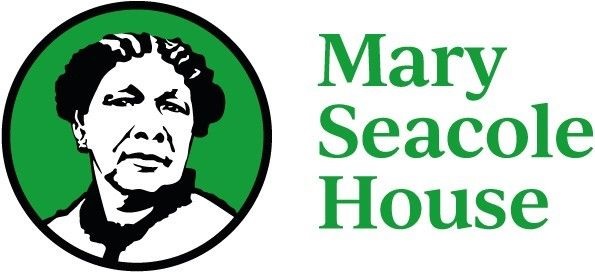BARRIERS THAT PREVENT BAMER COMMUNITIES FROM ACCESSING MENTAL HEALTHCARE IN LIVERPOOL
By Hussni Abdelaziz and Ivy Osei Bonsu, Community health & research engagement leads for Mary Seacole House

BAMER (Black, Asian, Minority Ethnic, and Refugee) communities are confronted with peculiar difficulties and obstacles when it comes to access to mental health care in Liverpool and the UK as a whole. The complicated realities that BAMER communities experience are most often overlooked by common assumptions about mental health care within these underserved communities, such as the notion that these groups are less likely to prioritise mental health in the first place. Tailored and culturally sensitive approaches that consider the unique requirements of BAMER groups are necessary for providing effective mental health care.
On Thursday, 12th June, 2024, Mary Seacole House hosted an insightful event to present the findings of our small study, on the barriers that prevent BAMER Communities from accessing mental health services in Liverpool. It was a gathering of healthcare professionals, researchers, academics and community leaders, who are collectively concerned with the improvement of mental health support in Liverpool and the Northwest Coast. In this study, we perceived and analysed language, discrimination, lack of family support, financial constraints, stigma, and a complex pathway to care, as possible challenges these communities might readily identify with in seeking mental health support. However, the study highlighted three key actual barriers, the first and most important of which was a general lack of awareness about existing mental health services across a larger proportion of respondents. People are less likely to seek prompt intervention when they are uninformed of the mental health resources that are available to them fundamentally and, this delay generally leads to aggravated mental health issues among these populations.
Additionally, the second significant barrier identified was that a majority of BAMER community members, even with an awareness of the existing support services, prefer community-based mental health services to mainstream services. This preference is largely due to community-based services being more sensitive to the cultural, linguistic, and social subtleties of these groups, which promotes a culture of trust and relatability as compared to the mainstream mental health services. Language was the third and most common barrier recorded in the study as none of the respondents spoke English as their first language.
Key recommendations from the study were discussed, and all attendees of the event gave valuable contributions and insights on how best we as stakeholders can collectively address these barriers, to help improve mental health care in BAMER communities. There was a unanimous call for maximum mental health support awareness creation, and for funding authorities to adequately support the operations of community services to ensure sustainable targeted initiatives and support systems within these communities. Although there is an existing language support system in place, the fact that people are still discouraged from seeking mental health support due to language barrier is quite worrying. This necessitated recommendations for community liaison and engagement, to provide appropriate training for and equally employ qualified persons from BAMER backgrounds to bridge the gap in communication between clients and providers. Cultural competence and sensitivity training for existing healthcare staff was also recommended to ensure cultural awareness among mental health service providers.
Mary Seacole House as a BAMER focused mental health charity is fully committed to ensuring adequate support for these minoritised ethnic groups. Bringing together a diverse group of stakeholders to discuss this crucial topic epitomises our dedication to see these barriers eradicated. The event was a significant step in reinforcing existing and ongoing campaigns for equality and diversity in mental and general health care. We ask all concerned stakeholders involved in mental health care to support this endeavour, both in the frontline and behind the scenes by working together and supporting this campaign, as well as ongoing ones, to ensure the Liverpool and Northwest Coast region is supportive and equitable for BAMER communities.
The Community Research and Engagement Network (CoREN) works with communities across the NW coast to support them to become more research active, and be involved in developing, creating and doing research which has the potential to impact in local places. Recently one of the CoREN organisations, Mary Seacole House, developed their own study, looking at barriers to racially minoritised communities accessing mental health services. The following blog piece discusses this work. For more information on the CoREN please contact Claire Selby, Stakeholder and Engagement Manager – c.selby@lancaster.ac.uk